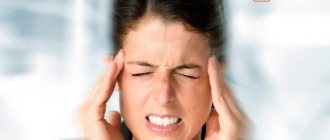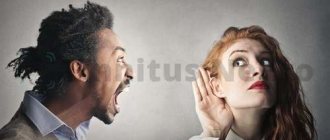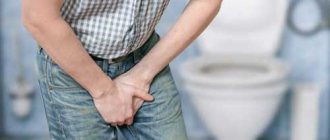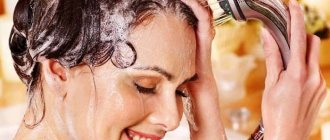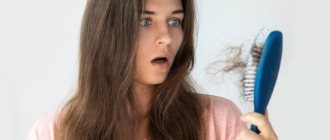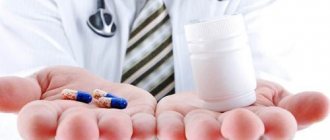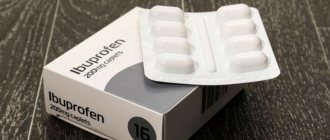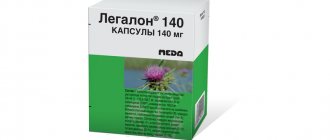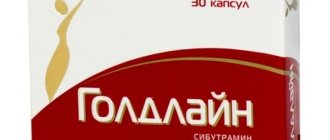Noise in the head and ears, fog and confusion can result from many reasons.
As a rule, such symptoms are associated with circulatory disorders, but the primary task of the doctor is to establish the etiology of such disorders. Only after diagnostic measures are carried out, pills for noise in the head are prescribed.
There are many definitions and medical terms to describe cephalalgia (as doctors call headaches).
If this phenomenon is one-time in nature, the patient prefers to take Citramon, Ibuprofen or a drug with a similar effect. But in case of chronic cephalgia, especially with accompanying dizziness, weakness, ringing in the ears, noise in the head, it is necessary to consult a specialist.
Typically, the therapist issues referrals for the following studies:
- a general blood test to determine possible chronic viral and infectious diseases (by leukocyte count and ESR level), anemia (by hemoglobin concentration, number of red blood cells);
- clinical urine test to identify problems in the kidneys, indicated by an increase in protein levels, the appearance of leukocytes, red blood cells, and salts;
- ECG to diagnose the rhythm and order of heart contractions; if necessary, a cardiogram is carried out in parallel with Doppler ultrasound of the heart;
- An EEG (electroencephalogram) is needed to determine the functioning of the brain, in other words, this test is used to check the quality of the response to any stimuli;
- MRI, a modern technique that allows you to determine possible tumors and the quality of blood flow in the brain.
Patients with a predisposition to various types of encephalopathies deserve special attention.
Risk factors include:
- bad habits;
- overweight;
- genetic predisposition;
- chronic arterial hypertension;
- anemia;
- pathologies of the circulatory system;
- disturbances of cerebral blood flow due to diseases of the cervical spine.
Tablets for noise and ringing in the head belong to different pharmacological groups and differ in their mechanism of action.
Typically, these medications:
- They influence specific receptors located in the vascular wall, causing it to relax. As a result, blood flow in the vessels of the brain improves. They have little effect on the level of total blood pressure.
- Eliminates manifestations of systemic hypertension. Such drugs improve the functioning of the heart muscle and prevent tissue hypoxia.
- Compensate for iron and vitamin deficiency. This condition can also cause noise in the head and poor health.
- Relaxes skeletal muscles and restores the structure of the cartilage tissue of the intervertebral discs. Such drugs are prescribed for impaired blood flow in the brain associated with cervical osteochondrosis.
- Normalizes the tone of the nervous system. Typically, strong antidepressants cause drowsiness and generally affect lifestyle. Therefore, for mild neurological disorders and exposure to stress factors, mild herbal sedatives, medications with magnesium and B vitamins are indicated.
The result of treatment depends on the correct prescription and diagnosis. For mild and moderate disorders, medications are taken in tablet form. New generation medications are quickly absorbed from the digestive tract, are highly bioavailable and very effective.
If a person has serious cerebral circulatory disorders and pronounced external and pathophysiological signs of encephalopathy, hospitalization in a hospital is possible. In a hospital setting, medications are administered parenterally in the form of intramuscular injections or intravenous drips. Contraindications to taking medications depend on the pharmacological group to which the medicine belongs.
But the general restrictions on starting treatment are usually:
- pregnancy;
- lactation period;
- low blood pressure;
- malignant and benign neoplasms in the brain;
- children and teenagers up to 14-18 years old.
Medications are prescribed with caution for aneurysm, risk of ischemic or hemorrhagic stroke. Patients with diabetes mellitus, disorders of the secretion of the thyroid gland, pituitary gland, hypothalamus, and adrenal cortex require strict control of treatment. Drugs are selected taking into account pharmacodynamics for renal or liver failure. They also pay attention to concomitant diseases and the use of other medications.
Treating tinnitus - folk remedies
Noise, ringing, clicking in the ears - there are many reasons, but the result is the same - this sensation is extremely unpleasant. There are as many reasons as there are solutions to problems, and one of them is the treatment of tinnitus with folk remedies.
In general, this topic is one of the most popular on this blog. Letters are coming, recipes are being written, there are also comments on this topic, so the conclusion suggests itself - the topic is relevant and needs to be continued.
I wrote about the causes and types of tinnitus, about the connection between tinnitus and VSD in a previous post. From it you understood that there are many reasons for all kinds of extraneous sounds, and first of all you need to go to the doctor in order to establish the cause of tinnitus. Depending on the results of the examination, treatment is planned.
And there really are a lot of reasons - from osteochondrosis in the cervical spine to incorrectly placed dentures.
Most often, doctors prescribe for this disease: B vitamins, nicotinic acid, preparations with iodine, aloe extract.
Causes of noise with age:
- Employees of organizations whose activities involve being in rooms with constant loud sounds may develop an occupational disease called hearing loss. The change in the structure of the ear is irreversible and cannot be treated; only support with a hearing aid is possible.
- Ear wax can cause hissing sounds.
- Diseases of the cardiovascular system:
- High blood pressure is accompanied by noise phenomena that warn of an impending hypertensive crisis;
- The occurrence of atherosclerosis due to disturbances in lipid and protein metabolism changes the structure of the walls of blood vessels, which provokes the appearance of a hum;
- Hypoxia of cerebral vessels, a pre-stroke condition, causes a disturbance in cerebral circulation, leading to the appearance of a buzzing sound;
- Destructive changes in the spinal column in the cervical region compresses the artery.
- Neurological problems:
- A mental illness called senile dementia, accompanied by vascular changes;
- Tumor-like growth in the ear cavity.
- Inflammatory processes in the middle ear, covering the eardrum or Eustachian tube with disruption of the free flow of fluid and bone growths that close the ear canal.
- Cochleitis is a serious disease that causes a lot of trouble for the sick person, including the appearance of this symptom.
- Otosclerosis is an overgrowth of bone tissue that interferes with the flow of fluid in the middle ear.
- Representatives of the older generation take a large number of pharmaceuticals, which can cause side effects.
- Endocrine pathologies have a history of the appearance of extraneous sounds: diabetes mellitus, hyperthyroidism.
- New growths in the brain have a pressing effect on important centers of the brain.
- Traumatic injuries to the skull.
What is noise in the head like?
Every fifth person over fifty-five years of age experiences a specific symptom. In medical terminology, noise in the head is referred to as tinnitus. The causes of noise in the head of older people affect the degree and nature of the noise. Tinnitus can be different: hissing, ringing, gurgling, whistling.
The noise can last for different periods of time:
- If the duration of the noise sensation does not exceed three months, it is called acute;
- Hissing sounds that do not go away for more than 90 days, but less than one year - moderate tinnitus;
- The chronic course accompanies the patient for more than one year.
Sounds in the head can be heard at different volume levels:
- In the first degree, an elderly person feels an extraneous hissing, but not much, addiction occurs and no particular discomfort is felt;
- The second degree is characterized by a pronounced sound, insomnia appears due to the nocturnal manifestation of the symptom;
- The buzzing is regular, the sound in the head is loud and annoying;
- The fourth degree is the most severe, a person experiences severe suffering, the phase of sleep and wakefulness is disrupted, and the general state is depressed.
Feelings of constant noise in the head can lead to the development of a mental condition that negatively affects the quality of life. A compensated state is observed with mild manifestations, when a person is able to independently adapt to this symptom.
Severe degrees of development have a deplorable effect on the patient’s condition: chronic fatigue, headache, sleep disturbance. Mental disorders with tearfulness and irritability often appear. Only a doctor can help such patients.
Therapeutic measures
Treatment for noise in the head is complex, including the use of pharmaceuticals and traditional medicine recipes. The choice of drug, dosage and treatment regimen should be made by the attending physician.
Drug therapy
Drug treatment consists of eliminating not only the symptom, but also the pathology itself. After making an accurate diagnosis, it will be clear how to treat the disease. One of the most popular remedies: Vinpocetine, which helps strengthen the structure of blood vessels in the brain and normalize blood circulation.
B vitamins will help ensure optimal nutrition of brain tissue. Nootropil and Rumalon will have a calming and analgesic effect. Taking medications with Omega-3 has a beneficial effect on blood vessels and normalizes blood pressure.
Treatment of each specific disease is carried out with appropriate medications, since without eliminating the pathology, the buzzing in the ears will not disappear.
Physiotherapeutic procedures
Additional ways to get rid of pathology have a positive effect:
- Exposure to ultrasound;
- Warming up using infrared rays;
- Ultraviolet irradiation;
- Thermal exposure to a mercury-quartz lamp;
- Treatment with high frequency electric current (diameter).
All procedures are carried out under the supervision of a doctor, strictly following the instructions and recommendations.
Unconventional methods of treatment
- Help in getting rid of negative symptoms is provided by orthopedic products that improve blood supply to the brain with oxygen and nutrients. Such devices include:
- Orthopedic pillows and mattresses that promote correct body position for optimal night rest;
- The Shants collar ensures unloading of the cervical vertebrae during work.
- The use of medicinal leeches helps normalize blood pressure and reduce tension in the vascular wall.
- Acupuncture and acupuncture massage, which can be done at home, will alleviate the condition:
- Press the nasolabial fold with the second finger of your hand for ten seconds;
- Apply pressure on the point between the eyebrows for five seconds, increase to seven repetitions with short breaks;
- Massage the outer edge of the ear.
The buzzing in the head will decrease or disappear completely only with complex treatment. It is important to remember that no matter what treatment method is chosen by a person, each action must be agreed upon with the doctor who is seeing the patient.
Traditional medicine can also be used as an aid, with the approval of a doctor.
Treating tinnitus with onion juice
Onions are great for ear pain (baked with cumin), and they also help with otitis media.
Option 1
Squeeze out a few drops of onion juice and moisten a cotton swab with it. We insert the tampon into the ear. Likewise for the second ear. We keep it for 2-3 hours, after which we change tampons.
Option 2
Place 3-4 drops of juice in your ears. This method is also used for hearing loss. The effect is usually immediate.
One of the causes of tinnitus is sinusitis. It can also be treated with onions.
Take: half a glass of hot water, half a teaspoon of honey, onion juice from one onion. Mix all this and leave for 5-6 hours. Strain the infusion and rinse your nose several times a day.
Treating tinnitus with strawberries
One of the most common causes of tinnitus is atherosclerosis. If this is the reason, then it is recommended to abandon traditional tea and coffee and switch to tea made from strawberry leaves. It is better to drink herbal tea with honey, without restrictions and at least 2 times a day. Soon you will be pleasantly surprised that in addition to the disappearance of noise, clarity of consciousness will also appear.
Treatment of tinnitus with horseradish
Just like with the story with strawberries, if you have tinnitus from atherosclerosis, then it is recommended to take horseradish pulp. It's done like this:
Peel the horseradish and soak it for several hours. Next, grate it on a fine grater and add 1 cup of sour cream to 1 tablespoon of horseradish. As a result, we will learn a glass of fragrant sour cream, which can be used to season salads, beets, potatoes, etc., or at least eat 1 tablespoon of this “horseradish sour cream”

